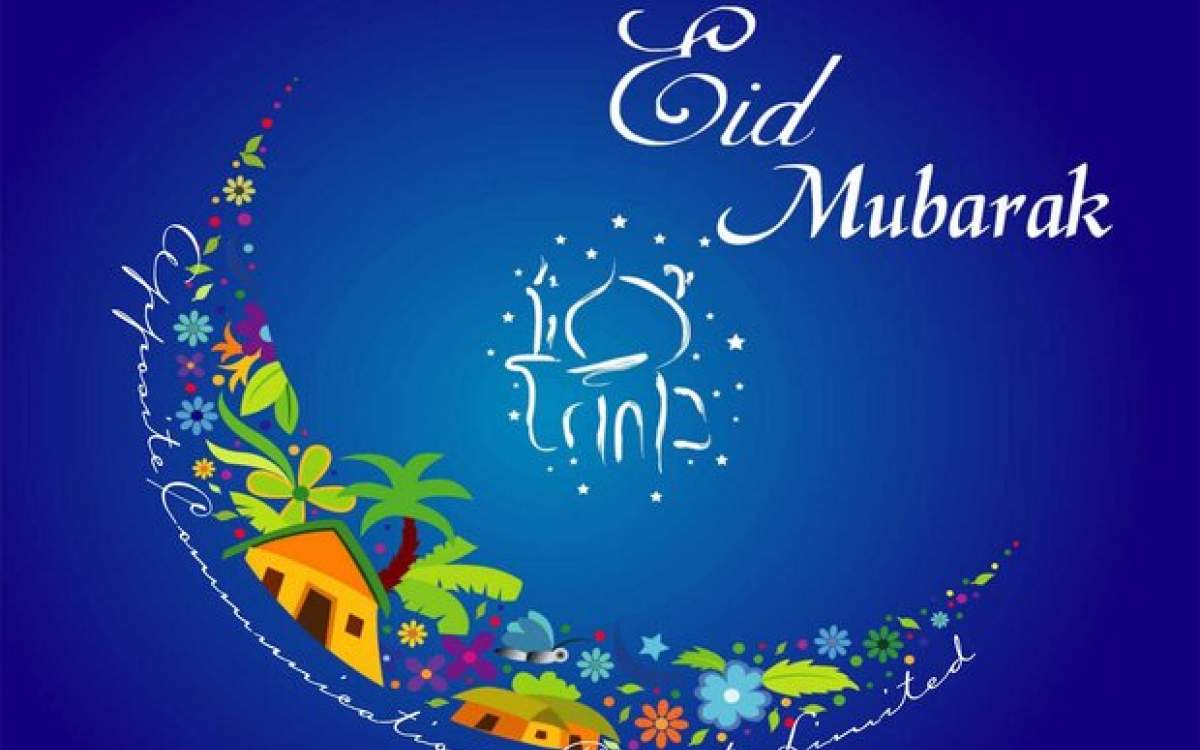The Iran Project
: The end of a phenomenon is not always bitter; sometimes it is extremely sweet and enjoyable particularly if it is a blessed event like Eid al-Fitr in the Islamic culture.
Wednesday 10 April 2024 - 01:38
Story Code : 419260
Source : Mehr News
Eid al-Fitr; Sweet end of hard month
In Tehran, a massive population of worshipers from all walks of life gather at the Tehran Friday Prayers Compound, also known as the Imam Khomeini Mosalla, to attend the prayer marking the end of the holy fasting month of Ramadan.
Eid al-Fitr is an important religious holiday celebrated by Muslims around the world. It marks the conclusion of the 29 or 30 days of dawn-to-sunset fasting during the entire month of Ramadan.
The occasion falls on the first day of the 10th lunar calendar month of Shawwal, the start of which varies based on the sighting of the new moon by local religious authorities.
Eid al-Fitr has a particular Salat (Islamic prayer) which is generally offered in an open field or a large hall with congregation in attendance.
Muslims believe that they are commanded by God, as mentioned in the Holy Quran, to continue their fast until the last day of Ramadan and pay the Zakat al-Fitr – a ritual offering – before offering the Eid prayers.
Most people attend their local mosques for communal prayers. The last feast or Iftar is more elaborate and is quite often joined by family, friends, and neighbors.
The prayers are usually led by prominent religious figures and Marja’s.
The leader congratulates the great Islamic Ummah, all the Muslims of the world, the great faithful Iranian nation, and all those present in the meeting on this great Islamic Eid.
It is worth mentioning that Imam Khomeini also used to extend his felicitations to the nations on the auspicious occasion of Eid al-Fitr by sending congratulatory messages to heads of state and people of the Muslim countries on this religious and spiritual event.
The leader of the Muslim world used to urge them to undertake serious efforts to raise the Palestinian issue and other problems plaguing the Islamic world.
The leader of the contemporary Muslim world used to divine occasions of Eid to foster harmony and unity among Muslims.
According to the Imam, the spiritual event has deep roots in the Quran and should be used to create unity among Muslim Ummah and eradicate any divisions among them.
Imam also emphasizes that the Eid prayers boost unity among Muslim ummah restore dignity to them, and finally provide a platform to confront aggressive policies and cruelty of the arrogant powers.
The Islamic traditions narrated by the holy prophet of Islam and his infallible successors show that the divine feast should be used to help needy and oppressed people.
The Muslims attend communal prayers, listen to sermons, and give Zakat al-Fitr or donations to the poor and needy people.
Muslims across Iran and other parts of the world turn out en masse to take part in the occasion’s special congregational prayers.
Imam Khomeini stressed that Eid, which marks the blessed fasting month of Ramadan, is a divine reward for believers and faithful people who have overcome the devil-inspired carnal desires after fasting for an entire month.
Muslims believe Ramadan to be an auspicious month for the revelations of God to humankind, given the belief that it was in Ramadan when the first verses of the Holy Qur’an were revealed to Prophet Muhammad (PBUH). This month, they fast as an effective way of practicing self-discipline. They are also expected to strengthen their character through self-restraint, charitable giving, and introspection.
At the end of the fasting day, Muslims break their day-long fast with an “iftar” meal.
One of the main rituals of Islam, fasting is obligatory for all Muslims except the sick, pregnant women, and some travelers. In all cases, once health is restored or traveling has ended, these missing days should be made up by fasting (for the same number of days).
The practice is observed for the whole month and ends with celebrating Eid- al Fitr’.
Every year ahead of Eid al-Fitr, the Leader of the Islamic Revolution Ayatollah Seyyed Ali Khamenei
agrees to a request by Iran’s Judiciary to suspend or mitigate the sentences of the inmates deemed eligible for parole or reduction of prison sentence.
This year, he has pardoned or commuted the sentences of over 2,000 Iranian inmates to mark the main Muslim festival of Eid al-Fitr, signaling the end of the holy fasting month of Ramadan.
Ayatollah Khamenei pardoned or commuted the sentences of 2,127 prisoners to mark the Islamic occasion.
The prisoners who were granted clemency included inmates convicted by the country’s public and Islamic Revolution courts, the Judicial Organization of the Armed Forces, and the State Discretionary Punishment Organization.
As a diplomatic gesture, world leaders and high-profile officials congratulate the Iranian President on Eid al-Fitr in separate messages.
Reporter : Editorial of The Iran Project
# Tags











